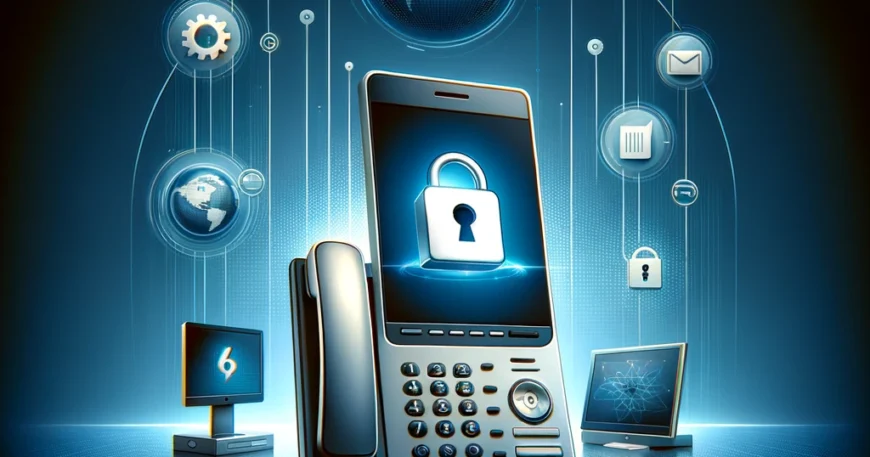The adoption of Voice over Internet Protocol (VoIP) systems by businesses is on the rise due to the cost savings and advanced features they offer. However, VoIP systems are vulnerable to cyberattacks, making it crucial to implement essential security measures to protect your VoIP phones from potential threats.
1. Enhance Password Security
Passwords are the first line of defense against unauthorized access to your VoIP system. Unfortunately, their effectiveness has waned over time as modern hackers have developed tools to easily guess passwords and exploit them for attacks. To strengthen your VoIP security, employ measures such as multifactor authentication or use a password manager to create and manage complex passwords for your VoIP accounts.
2. Verify That Your VoIP Provider Uses Encryption
VoIP systems without encryption are easy targets for cybercriminals. Hackers can download tools to eavesdrop on your calls without needing advanced technical skills. While many VoIP service providers claim to use encryption, it is crucial to verify the actual security measures in place. Encryption ensures that intercepted audio or video call files remain unreadable to hackers without the decryption key, protecting your phone systems.
3. Turn Off the Phone’s Web Interface
The web interface of a phone allows users to access device settings, features, and accounts via a web browser. This interface can be a vulnerability, as it enables users to change critical settings such as passwords and caller IDs. Disabling the web interface is a proactive step to prevent malicious attacks by restricting access to your accounts through a web browser, thereby enhancing security.
4. Work With an IT Provider for 24/7 Monitoring
VoIP security breaches can occur outside regular business hours, when businesses are closed. Attackers often exploit this window to make unauthorized calls using private accounts or infiltrate call records to steal sensitive data. These breaches can go unnoticed for long periods. Partnering with an outsourced IT provider that offers round-the-clock monitoring of network traffic can help detect and address irregularities promptly, preventing privacy breaches.
5. Use VPNs
Virtual private networks (VPNs) create a secure connection between two devices, simulating connectivity to a closed network. A VPN provides a private, encrypted pathway that is accessible only to you and the intended recipient of your call. VPNs also help VoIP users manage challenges related to Session Initiation Protocol (SIP) trunking, a highly recommended feature for VoIP systems.
Bonus Tip: Implement VoIP Firewalls
VoIP firewalls are designed specifically for IP-based telephony, regulating the flow of traffic allowed into your network. Their primary role is to identify suspicious or unusual calling patterns and ensure that each connection is appropriately terminated at the session’s conclusion. While most VoIP vendors offer these protocols, seeking guidance from your IT services provider on managing them within your organization is advisable for added security assurance.
VoIP security is as critical as your other cybersecurity priorities. Our experienced IT professionals are ready to assist you in creating the ideal security strategy for your VoIP systems. Contact us today to begin fortifying your communication network.
Sun IT Solutions, located in Toronto, is a leading IT consulting firm providing a wide range of services. Our offerings include Managed IT Services, Network Management, Co-Managed IT Services, Help Desk Support, Remote IT Support, Unified Communications, Tech Support, Cloud Solutions, Managed Security, IT Outsourcing, Business Continuity and Disaster Recovery (BCDR), Cyber Security Training, and Dark Web Monitoring. Each service is customized to meet the unique needs of our clients, ensuring their operations run smoothly and securely. Benefit from our free data breach scan to see if your credentials have been compromised by hackers.




